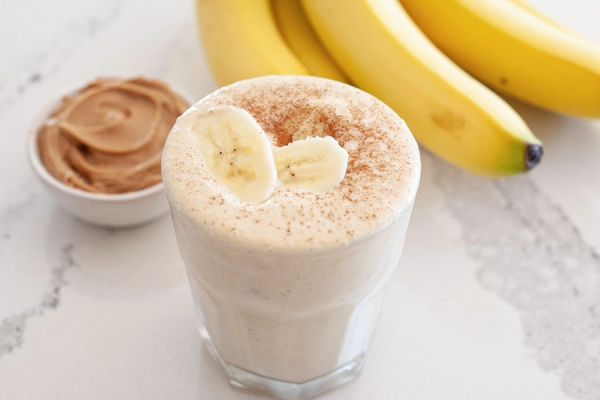Banana shake
Ingredients
- bananas – 1
- milk – 500 ml
- honey – 1-2 tsp
- lemon juice – a few drops
- ice – 2-3 cubes
- ice-cream – 2 vanilla flavoured scoops (not obligatory)
Preparation
Cut the banana and put it in a blender together with the milk, honey, lemon juice and ice-cream.
Blend for a short while and serve in tall glasses with straws.
